CMU offers presidential election expertise
Faculty members can shed light on political topics for news media
Central Michigan University expert faculty are available to provide media with insight into topics related to the 2020 presidential election. Our experts can speak extensively about policy issues, the economy, voter rights, youth political participation, public opinion, race and politics, and many other topics. Here's an introduction:
Presidential election and related topics
J. Cherie Strachan

Co-founder and co-director of Consortium for Inter-Campus Scholarship of Teaching and Learning Research
Strachan's publications address her concern over low levels of political engagement among specific demographic groups — particularly women and young people. These include the co-authored textbook, "Why Don't Women Rule the World," and a forthcoming youth-focused political behavior textbook. She can speak to U.S. politics, civil engagement, youth political participation, voting behavior, women and politics.
David Jesuit

Department chair and professor of political science and public administration
David Jesuit's research primarily focuses on social policy, income inequality and income redistribution in the U.S. and other affluent countries. He also explores how income inequality affects support for extreme-right political parties and trust in government, as well as foreign policy.
Kyla Stepp
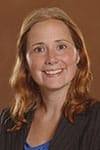
Assistant professor, political science and public administration
Director, CMU Pre-Law Center
Kyla Stepp's expertise lies primarily with the legal aspects of politics, including the courts and constitutional law. Her research interests also include public opinion and polarization, race and gender issues, and criminal justice law and reform.
Sterling Johnson
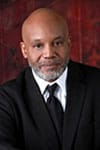
Professor, political science and public administration
Sterling Johnson specializes in American politics and policy, as well as African-American and urban politics. He can speak on voter turnout, voter suppression, the presidential campaign, race and inequality.
Economy
Alexander Maslov
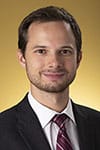
Faculty member, economics
Alexander Maslov's research interests are microeconomics, industrial organization, competition policy and institutional economics with a particular emphasis on e-commerce and online consumer-to-consumer markets. He can address economic issues in politics, including the impact of the election on the economy and beyond.
Health care and minorities
Elbert Almazan
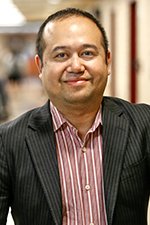
Professor, sociology
Elbert Almazan's research interests include examining the health and well-being of lesbian, gay, bisexual, transgender and queer populations. He can speak to how current health care policy affects the LGBTQ community, including the impact of the election on LGBTQ health care.
Presidential debates
Edward Hinck
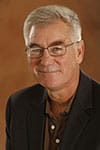
Department chair and professor of communication
Ed Hinck is the editor of "Televised Presidential Debates in a Changing Media Environment," a two-volume set that examines presidential and vice presidential debates, how citizens make sense of these events in new media, and whether the evolution of these forms of consumption is healthy for future presidential campaigns and democracy. He also is coauthor of a book titled "Politeness in Presidential Debates. Hinck is a former debate coach and was director of CMU's forensics program for 25 years. He teaches courses in advocacy, leadership, rhetorical criticism and communication theory.
Shelly Hinck
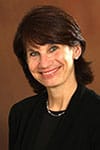
Professor of communication
Shelly Hinck's research interests include civic engagement, political debates, service learning and leadership. Her work has appeared in Argumentation & Advocacy, Scholarship of Teaching and Learning, Sex Roles, and the American Behavioral Scientist. She also is coauthor of a book titled "Politeness in Presidential Debates.
Lesley Withers
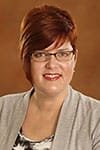
Professor of communication
Lesley Withers studies connections between the self and others, especially the emotional connections between people and the behaviors that threaten those connections. She can address the meaning of nonverbal communications by speakers and listeners and has analyzed the nonverbal communication patterns of presidential and vice presidential debate participants since 2004.